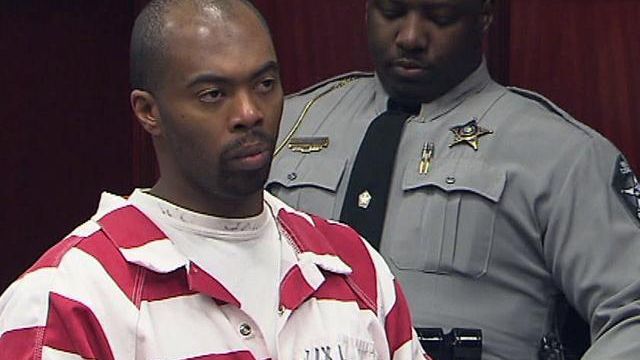Wake serial killer's attorney says confession was coerced
Samuel James Cooper, 34, was convicted April 6, 2010, on five counts of first-degree murder in a series of shootings in Wake County in 2006 and 2007.
Posted — UpdatedSamuel James Cooper, 34, was convicted April 6, 2010, on five counts of first-degree murder in a series of shootings in Wake County in 2006 and 2007.
He admitted to the crimes in 2007 after an unrelated bank robbery in which the gun he used was linked to ballistic evidence found at some of the murder scenes.
Arguing before the North Carolina Court of Appeals, defense attorney Mark Montgomery said police arrested his father on a weapons charge and put so much pressure on Cooper that he felt he had no choice but to tell investigators what they wanted to hear.
"Sammy held out for four days and finally confessed after they arrested his father, because the price they demanded for his father's release was his confession to murder," Montgomery said. "Sammy has a very strong attachment to his dad. Psychologists say it is a pathological attachment to his dad. The police knew that; they exploited that."
Steve Arbogast, an attorney for the North Carolina Attorney General's Office, disagreed, saying the facts of the case supported Cooper's guilt.
"The defendant was never, in any of those (confessions), told 'We're going to arrest your father if you don't start talking,'" Arbogast said. "They didn't lie to him about what they had, and they didn't yell at him. They didn't threaten him. There was no abusive language or conduct toward him."
In addition to challenging the admissibility of Cooper's confession, defense attorneys also argued that the court did not properly instruct the jury on whether Cooper acted deliberately – one of the required findings for a first-degree murder conviction.
They claim Cooper did not have the capacity to weigh the consequences of his actions. He suffered from post-traumatic stress disorder and dissociative disorder because of years of mental and physical abuse at the hands of his father, they argued, and was in a delusional state at the time of the shootings.
Prosecutors called Cooper a cold-blooded serial killer who was deliberate in the crimes, knew they were wrong and went to great lengths to hide evidence that could link him to them.
Any mental issues he had did not affect his ability to form a specific intent to kill, they argued.
The state unsuccessfully sought the death penalty for Cooper, whom a jury found guilty of killing Ossama Haj-Hussein, 43, on May 12, 2006; LeRoy Jernigan, 41, on June 3, 2006; Timothy Barnwell, 34, on April 27, 2007; Ricky High, 48, on Oct. 12, 2007; and Tariq Hussain, 52, on Oct. 14, 2007.
• Credits
Copyright 2024 by Capitol Broadcasting Company. All rights reserved. This material may not be published, broadcast, rewritten or redistributed.






